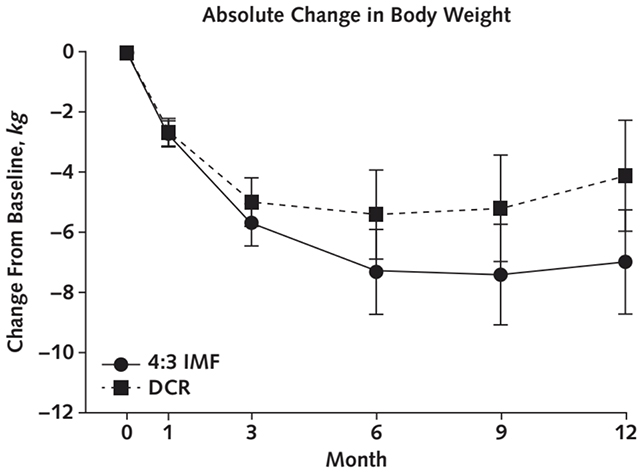A simple strategy for weight loss surpasses daily diets, the study says: Scienceatt
[ad_1]
Regarding the weight loss diet, the number of options may be overwhelming. A new study suggests that a simple approach could have a greater impact than constantly counting calories: the intermittent 4: 3 intermittent fasting routine.
A intermittent fasting calendar 4: 3 consists in limiting the calorie intake for three days a week and normally eating for the other four.
In the United States, researchers found that this approach led to an average weight loss of 7.6% over a year, against only 5% with a traditional daily calorie restriction diet.
It is not a huge difference, but it suggests that for some people at least, variable diet restrictions could be more effective – and easier to respect – than maintaining a daily caloric limit.

“It was surprising and exciting for me that it was better,” explains the endocrinologist Victoria Catenacci, of the University of Colorado.
The team has placed 165 overweight or obesity participants, aged 18 to 60, thanks to an intermittent fasting diet (IMF) or daily caloric restriction (DRC) during 12 months, while recommending an increase in activity.
The IMF group was invited to apply a calorie admission restriction of 80% over three days a week, without restrictions over the other four days (although eating healthy was still encouraged). To correspond to the limits overall, the RDC group was invited to reduce their daily calorie contribution by 34% per day.
Weight loss varied in the two groups, but the IMF group reached a fall of 7.7 kg (17 pounds), against 4.8 kg (11 pounds) for the DRC group. Small improvements in health markers and blood pressure have also been observed in the two groups.
“The most important message for me is that it is a food strategy which is an alternative based on evidence, especially for people who tried the DCR and who found this difficult,” said Catenacci.
The study is delivered with a few warnings. Participants self -deprecated their food and energy intake, and although the IMF group has recorded their fasting days, it is possible that they also limit the calorie intake on days either.
Researchers think that the IMF group may have been better to stick to their diet also, which may have influenced the results – but that could be considered a positive, because weight loss programs are more effective if they are easier to follow.
Despite these nuances, It is a victory for the intermittent fast here. Numerous research has been published on the IMF in recent years, with potential advantages and possible disadvantages highlighted, but what we know with certainty is that obesity increases – and we need more effective personalized approaches to approach it.
“Currently, a specific complete program focused on IMF 4: 3 does not exist to our knowledge,” explains the epidemiologist of physical activity Danielle Ostendorf, from the University of Colorado.
“So, I want to work on how to design this for implementation in clinics and community programs accessible to people and do something that they can afford.”
Research was published in the Annals of internal medicine.
[ad_2]




